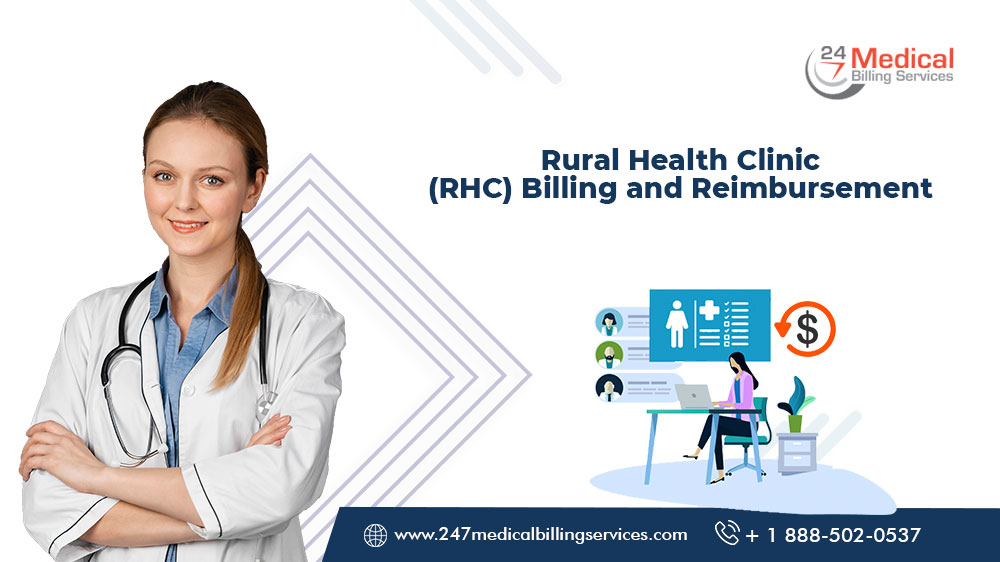
Rural Health Clinic (RHC) Billing and Reimbursement
Did you know?
Rural health clinics must now submit HCPCS codes, revenue codes, and charges for all services on distinct lines outside of the qualifying visit line, a significant shift from CMS' previous billing rules for these providers. It is now more essential than ever to record HCPCS codes, revenue codes, modifiers, and charges for qualifying visits, items, and services. Many RHCs have struggled to adjust to CMS' extensive billing changes, which has resulted in revenue flow issues. The challenges that RHCs encounter, when blended with the specific staffing requirements and qualifications they must meet, can appear overwhelming—but they don't have to be. Rural health clinics (RHC) must be aware of numerous aspects of billing and coding to enjoy the advantage of 100% reimbursement. Let’s have a look at some of RHC’s billing aspects:
Overview of RHC Reimbursement:
The following are the points to be kept in mind to ensure 100% reimbursement to the rural health clinics:
- Rural Health Clinics are reimbursed cost-based by Medicare and Medicaid.
- An encounter has a particular definition.
- For encounters between a qualified provider and a patient, RHCs are paid at an all-inclusive rate (AIR).
- The AIR reimburses qualified providers for expert and incidental services. Regardless of provider credential, all RHC essential services reimburse the AIR.
- Since lab services and other technical services are not RHC core activities, Medicare reimburses them separately.
- In terms of reimbursement, straight commercial payers do not recognize RHC status. These plans will enter into a fee-for-service agreement with the RHC.
Medicare Claim Form:
It is important to note that the RHC services are always billed on a UB-04 form in the electronic form of 837i. In fact, there are four common bill types (TOBs) used on RHC claims, and these include:
- 711 used for Original Claims
- 710 used for Non-payment/zero Claims
- 717 used for Adjustment Claims
- 718 used for Cancelled Claims
Medicare Payment to RHCs:
1. Medicare pays 80% of your all-inclusive rate (AIR), less 2% for the sequester (when in effect).
- Exception for qualifying preventive services - paid at 100% of AIR when the only service given on that day
2. The amount paid by Medicare has nothing to do with what you charge
- The patient's coinsurance is affected by your charge amounts.
Revenue Codes in RHCs:
Rural health clinics must submit claims with different revenue codes for other services to receive maximum insurer reimbursement. The most commonly used revenue codes in rural health clinics include the following:
Revenue Codes Services 0521 Clinic visit to RHC by a member 0522 RHC practitioner’s home visit 0524 Visit to the member by RHC practitioner in a covered Part A stay at an SNF 0525 Visit to the member by an RHC practitioner in a non-Part A SNF, NF, ICF, or another residential facility 0527 RHC visiting nursing services at a member’s home in a Home Health Shortage Area 0528 Visit to another non-RHC site by an RHC practitioner (i.e., the scene of an accident) 0900 Mental health visit 0250 Pharmacy – a drug with no J-code 0300 Venipuncture 0636 Drugs with detailed HCPCS J-code 0780 Telemedicine originating site
Points to remember:
1. RHCs must adhere to line-item detail code during the RHC visit for all services provided
- Inclusive of HCPCS codes for all RHC services, incident to services, and applicable professional components carried out during that visit on the UB-04.
2. Charges for all services provided incurred during the visit should be "rolled up" to the eligible visit line/CG modifier line
- The charge for qualifying preventive health services is an exception to this rule.
- Certain preventive health services are exempt from coinsurance and deductible.
3. Line 0001 is used to report the total charges for the entire claim
- However, it is not used to adjudicate payment.
Outsourcing RHC Billing - A Need of an Hour!
Some providers, primarily rural health clinic providers, avoid the complicated maze of medical reimbursement entirely by refusing to take insurance. They instead charge patients directly, bypassing the administrative burden of filing claims and appealing denials. Nonetheless, many providers need help managing to do so. Participating in multiple insurance panels allows providers to reach more prospective patients. This means more possible patients = more potential reimbursement for rural health clinics. You only need complete knowledge of RHC billing and reimbursement or outsourcing partners. You can contact the 24/7 Medical billing services team to get 100% reimbursement from rural health clinic (RHC) billing.
See also: Rural Health Care Billing Services

.png)